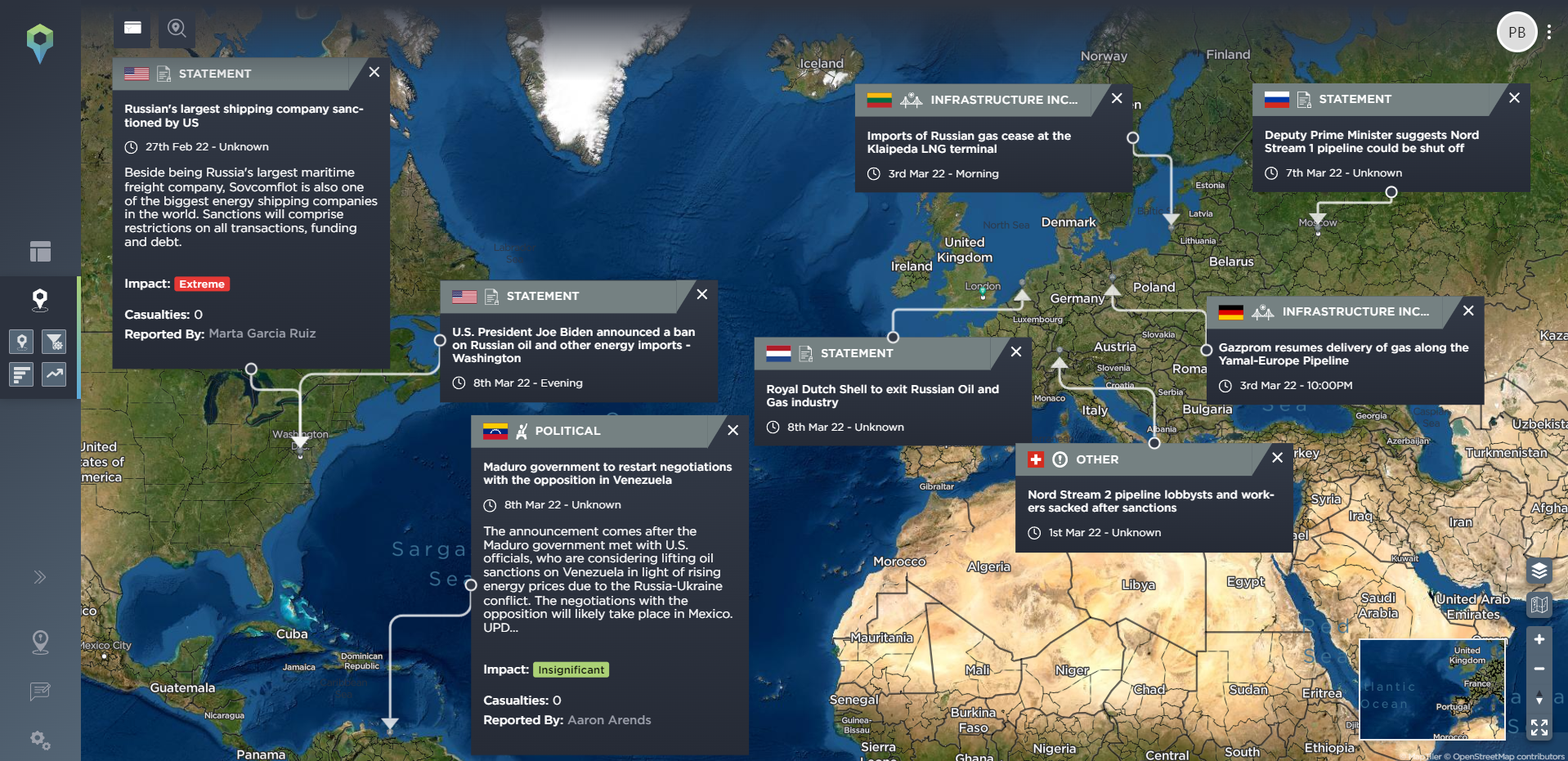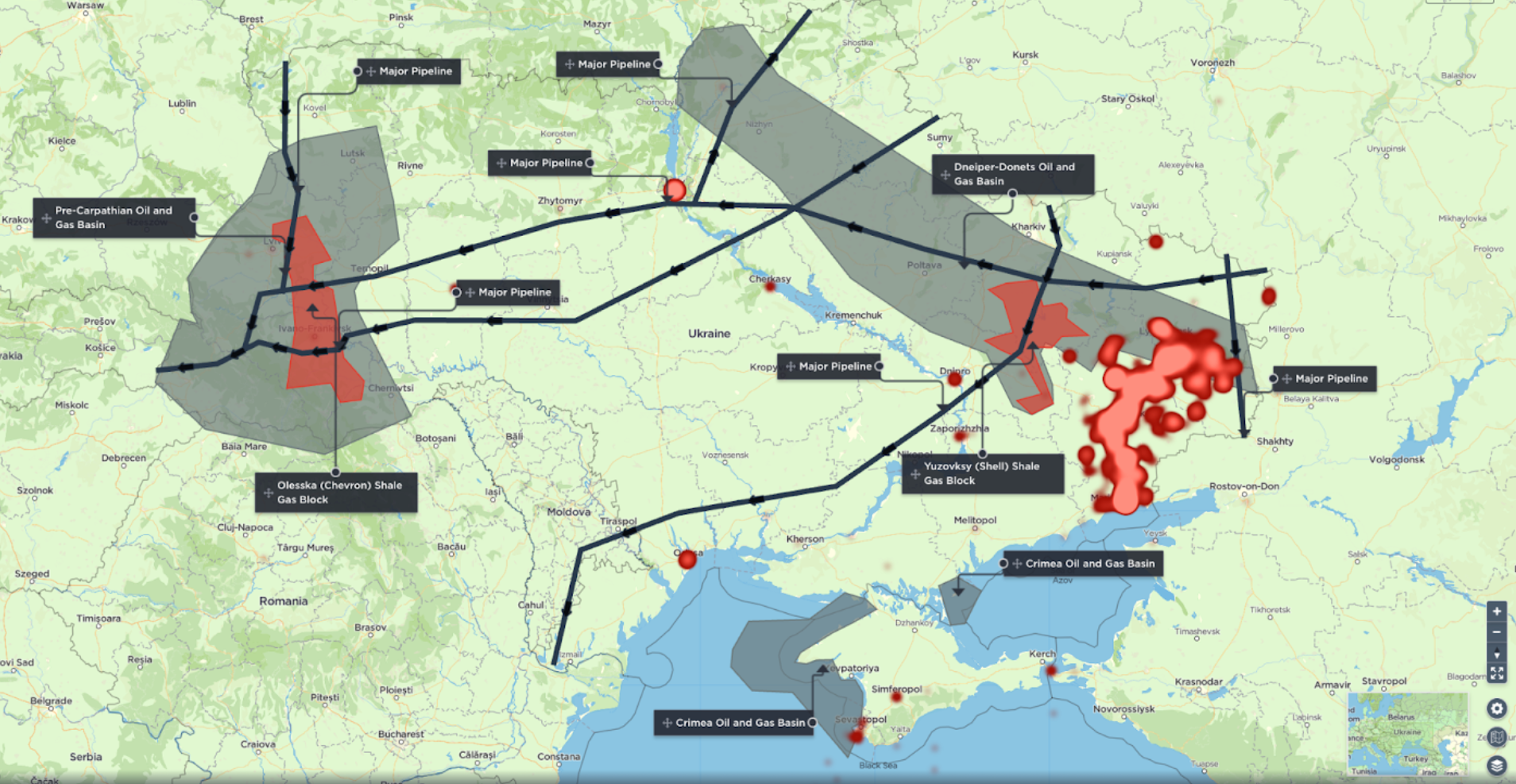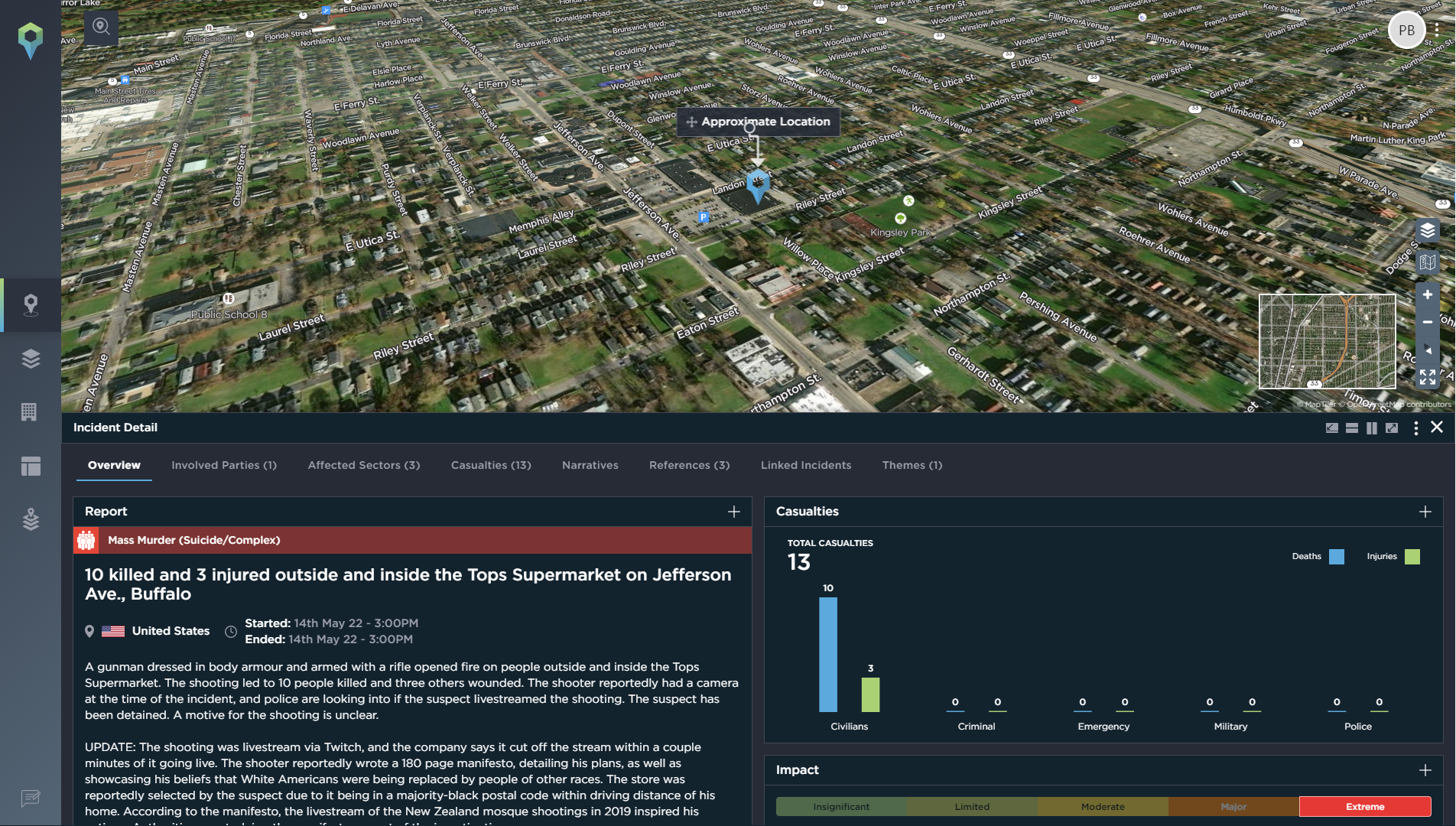The response of the far-right to the Russia-Ukraine war
How has the European far-right responded to the war in Ukraine?
The Russian war against Ukraine has offered opportunities for far-right extremist groups to promote their ideological agendas. This is a common tactic as groups often exploit the publicity of current events to attract more attention and manipulate narratives to disseminate extremist ideas to a broader audience. Far-right groups across Europe have been divided between supporting the authoritarian Russian President Vladimir Putin or the far-right nationalists fighting for Ukraine with few choosing to remain neutral. The invasion has mainly been used by far-right groups to criticise Western domestic politics and promote anti-West narratives blaming NATO and the United States for the Russian invasion of Ukraine. The narratives have generally been shaped to serve the groups’ political aspirations and sow dissatisfaction with Western liberal societies.
Choosing Sides
The support for Russia has mainly come from the New Right since Russian President Vladimir Putin has cultivated relationships with political parties and groups belonging in this branch of the far right for years. The New Right is a term that describes a political movement that emerged from the opposition to the social changes of the 1960s and is characterised by its support for traditional values including family, religion and national identity. Such groups claim that the war in Ukraine is the result of President Putin’s justified reaction to NATO’s expansionist policy. This has provided opportunities to promote support for ethnonationalism and authoritarianism praising Putin for policies enforcing intolerance regarding multiculturalism and gender equality. They often present Ukraine as Russian territory to further excuse the invasion of Ukraine while distortions of history are commonly used to deny Ukrainians’ ethnic identity. Most groups in France as well as Italy have sided with Russia. The German far-right group Freie Sachsen (Free Saxons) has expressed support for President Putin and staged protests against Ukrainian refugees who they called Nazis.
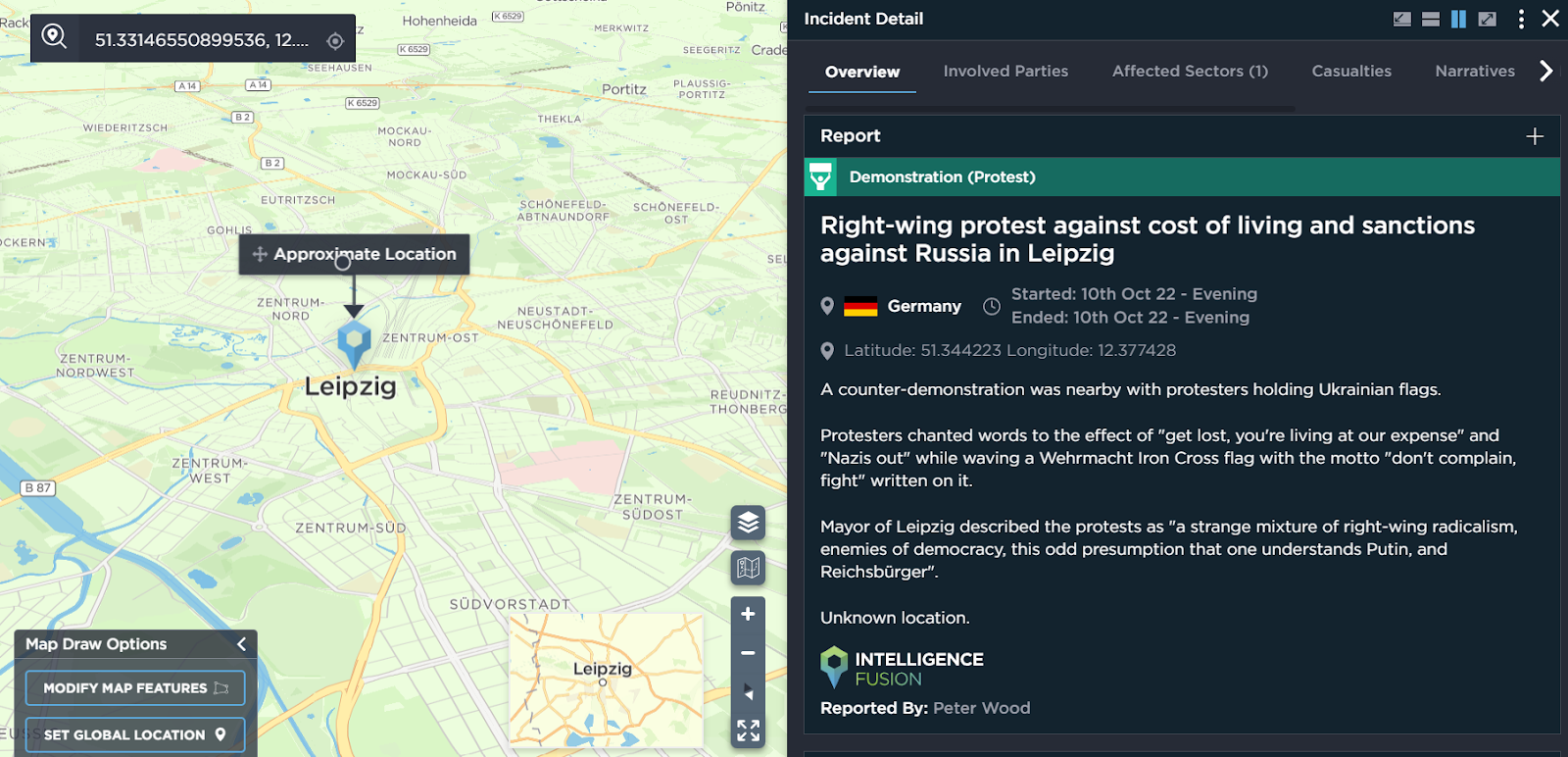
[image source: Intelligence Fusion]
Groups claim that governments and the media are demonising Russia and hide the truth behind the invasion of Ukraine which results in societies being unfairly critical of President Putin. Far-right groups have expressed solidarity with the Russian people who they believe are facing persecution following the invasion, sometimes comparing the situation to the Holocaust. For instance, the Greek far-right group Golden Dawn often claims that lies misrepresenting Russia are disseminated to manipulate public opinion in order to justify continued military support for Ukraine and therefore, promote NATO’s expansion in eastern Europe.
The support for Ukraine has come from far-right groups endorsing the National Socialist ideology. These groups focus more on the superiority of the Aryan race, the need for a strong centralised government and the persecution of Jews and other minority groups. They have expressed support for Ukraine by focusing on people’s right to self-determination and have criticised what they believe to be Russian imperialism along with US/NATO globalism. In this context, globalism refers to conspiracy theories that claim the economic and political system in western countries is controlled by secret factions that aim to undermine the interests and safety of white people. These groups have also rejected Putin’s denazification of Ukraine.
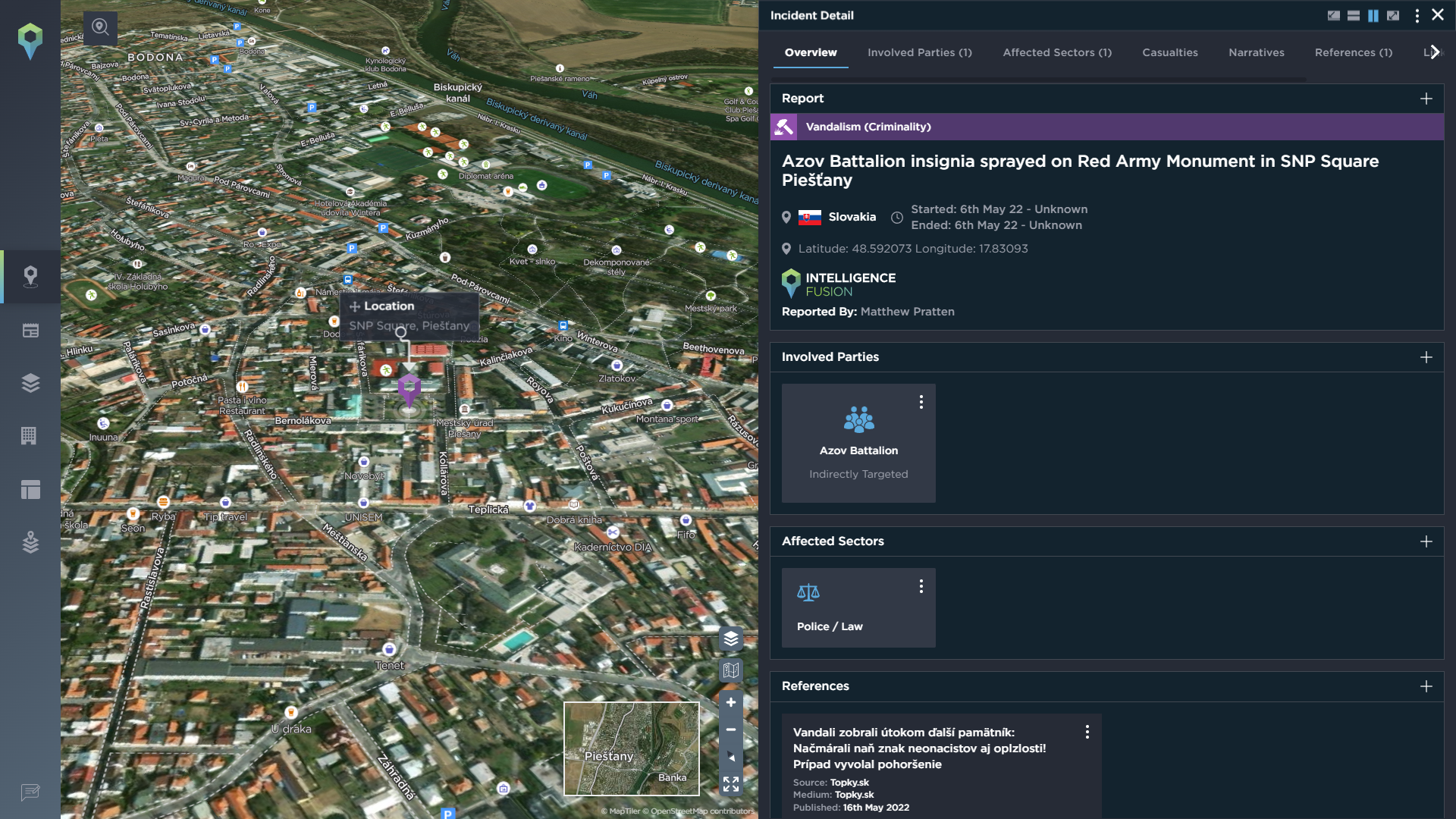
[image source: Intelligence Fusion]
Anti-communism has also been a sentiment motivating opposition to Russia since the country has been respected by far-right groups when perceived as an all-white, Christian ethnic nation. The invasion of Ukraine has often been considered as an attempt to re-establish a type of multi-ethnic state similar to the Soviet Union, which would take away the perceived ethnic purity of Russia. Groups have also opposed the loss of white lives as a result of the war. They have condemned the conflict as it involves white people on both sides and considered Putin’s actions as anti-white. Many neo-Nazi groups in Germany with the most prominent being Der III. Weg (The Third Path) have sided with Ukraine and have supported the Azov movement while claiming to have provided material support to Ukrainian nationalists. The support for the Azov Battalion likely stems from aspirations for the rise of National Socialism in Ukraine following the end of the conflict.
Disseminating anti-West propaganda and anti-government sentiments has been the most prominent and more widely shared position among European far-right groups. Expressing discontent with the status quo is an effective tactic for far-right groups to attract dissatisfied people and inspire acts of violence. The choice to present current politics as deplorable and in need of an extreme change has been crucial for far-right groups and the war in Ukraine has been used to promote the belief that the governments across Europe are not concerned about the safety of their citizens.
Anti-Semitism
Ukraine President Volodymyr Zelenskyy’s Jewish descent appears to have contributed to the promotion of anti-Semitic messages. Far-right groups often promote conspiracy theories presenting Jews as a powerful and secretive group that manipulates events and controls governments, financial systems and society in order to further their own interests and undermine Western civilization. Following Russia’s invasion, far-right extremist groups have portrayed President Zelenskyy as being an instrument for Western political agendas which are at the same time influenced by the manipulation of Jews. Most anti-Semitic narratives focus on theories that the Jews are those mainly benefiting from the conflict which is sometimes interpreted as part of wider efforts to establish a One World Government.
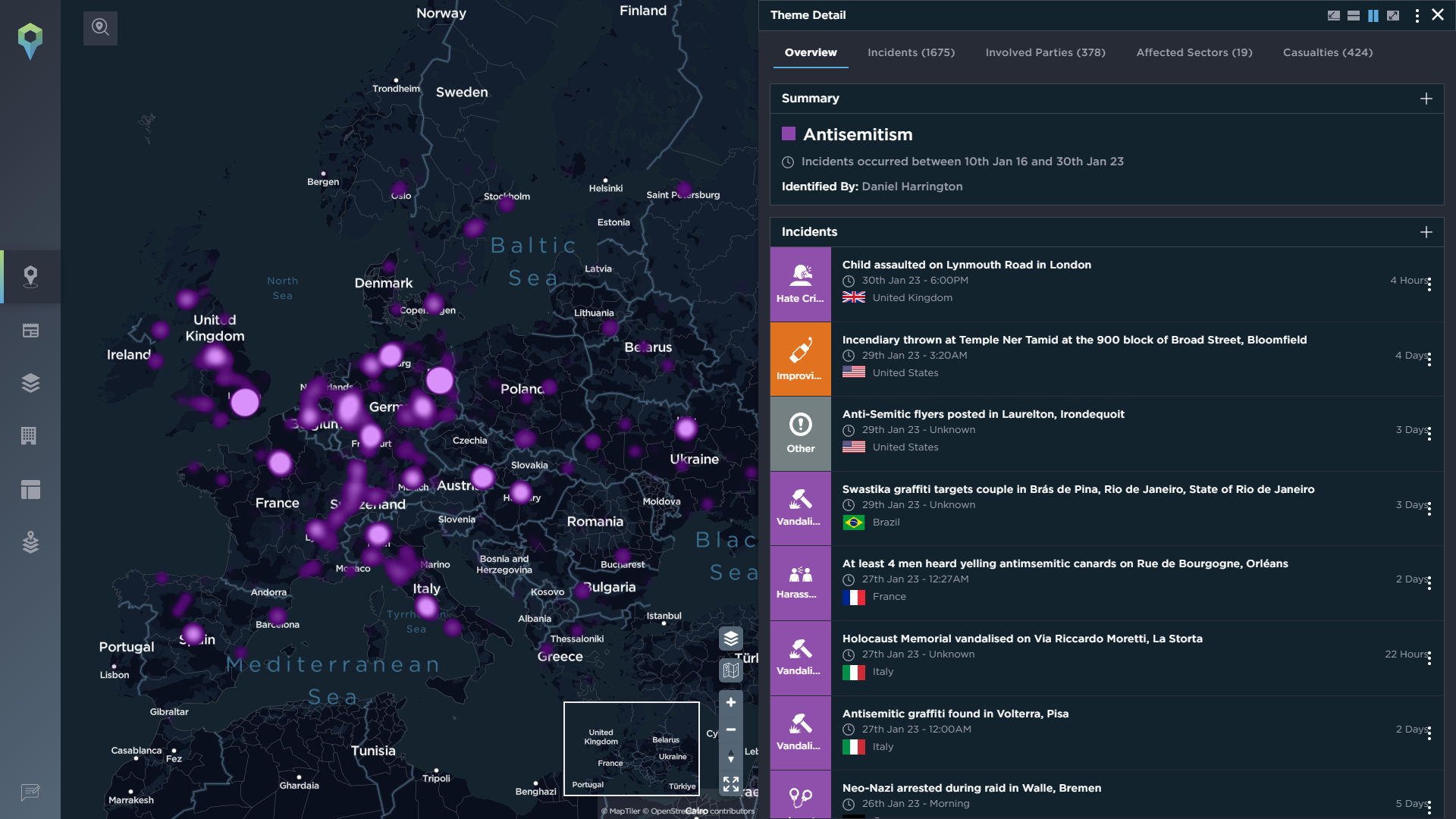
Incidents mapped under the Anti-Semitism theme on the Intelligence Fusion platform [image source: Intelligence Fusion]
Conspiracy theories about the Khazars have been disseminated in conspiracist and right-wing extremist online communities following the invasion of Ukraine. This conspiracy refers to the belief that Eastern European Jews descended from the Khazar people who supposedly converted to Judaism in the 8th century and lived in Ukraine. The theory has been used by neo-Nazis and Holocaust deniers to delegitimize the State of Israel by claiming that Ashkenazi Jews are descendants of the Khazars rather than the ancient Israelites. Since the conflict in Ukraine broke out, far-right groups have used this theory to present Russia’s invasion as a war against the Khazarian invasion. Posts on Telegram have claimed that Russia is fighting against the Khazars who perform blood-drinking rituals, manipulate human DNA and aim to destroy Christianity. Such anti-Semitic conspiracy theories can help dehumanise the Ukrainian people. Although a direct link between the war in Ukraine and a rise in anti-Semitic hate crimes has not been observed so far in Europe, the dissemination of anti-Semitic narratives could likely have an effect in the long term.
Foreign Fighters
Since the beginning of the conflict, there has been chatter on far-right social media networks about travelling to Ukraine or Russia to join the war. Based on that, there were fears that members of far-right groups would join the conflict in large numbers assuming this would offer the groups opportunities to expand their networks and develop military skills. Members of the Russian Imperial Movement have reportedly joined the war to fight for Russia along with the Wagner Group’s Rusich Task Force that has also been accepting applications for enlistment via Telegram. The numbers and ethnicities of any European foreign fighters joining the conflict on Russia’s side is unclear at this time, although reports indicate that the Russian Imperial Legion has provided training to German and Swedish neo-Nazis in the past.
In March 2022, the Ukrainian Ministry of Defense announced that over 20,000 people from 52 countries had volunteered to join the conflict. Only about 1,000 to 3,000 from those are estimated to have actually travelled to Ukraine. Most of them have come from France and Germany and have joined the Ukrainian Territorial Defence Forces. Far-right extremists are believed to make up a very small part of the foreign fighters in Ukraine. Although Polish and German neo-Nazi groups have sided with Ukraine, very few have travelled while the Swedish Nordic Resistance Movement has stated that neither side is worth dying for. The belief that the war has been the fault of the West and benefits Jews has very likely contributed to the limited enlistment of far-right extremists. Despite that, there have been many reports about rapidly rising numbers of far-right extremists joining the conflict which could likely be the result of Russian disinformation.
Looking Forward
Many far-right groups have drawn attention to the refugee crisis that comes as a result of the war in Ukraine and regardless of the ethnicity of the refugees, this has been considered a threat. A Ukrainian refugee shelter in Gross Strömkendorf, east of Hamburg, was the target of an arson attack and had been defaced with swastikas. More attacks against refugee shelters and Ukrainian refugees are likely as the conflict persists.
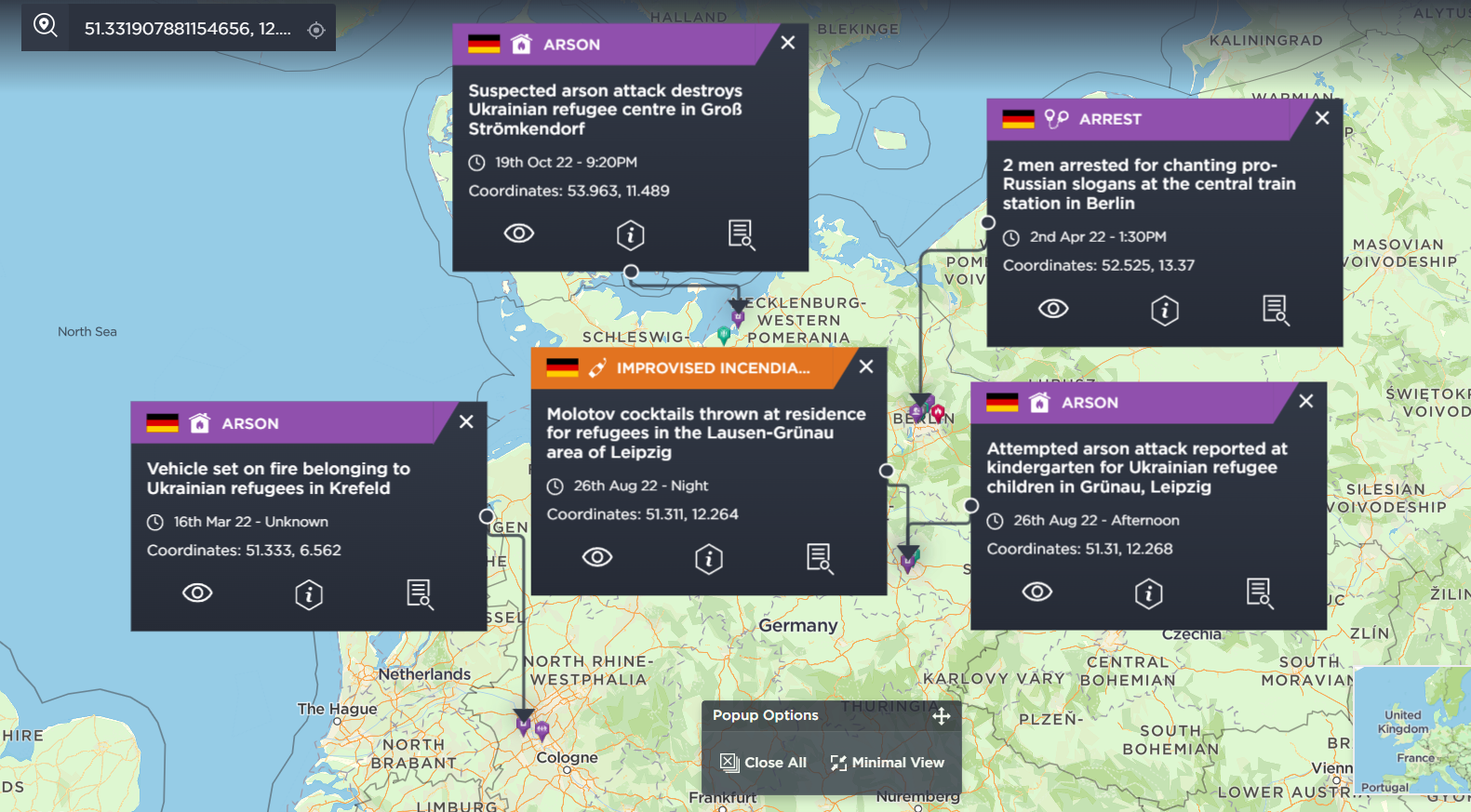
Incidents of anti-Ukraine/pro-Russian sentiment in Germany since the Russian invasion of Ukraine [image source: Intelligence Fusion]
Far-right groups have staged protests in support of Russia which are very likely to continue as Europe provides military support to Ukraine. Far-right groups were staging weekly protests against Germany’s military support to Ukraine in Zittau and eastern Germany asking for gas imports from Russia to resume. The views on the Russia-Ukraine War can very likely shape the groups’ agendas and attract people who are anxious to see the energy and cost of living crisis resolved. After members of the Reichsbürger movement were arrested for planning a coup in Germany in December 2022, it was discovered that they were also planning to conduct foreign policy negotiations with Russia.
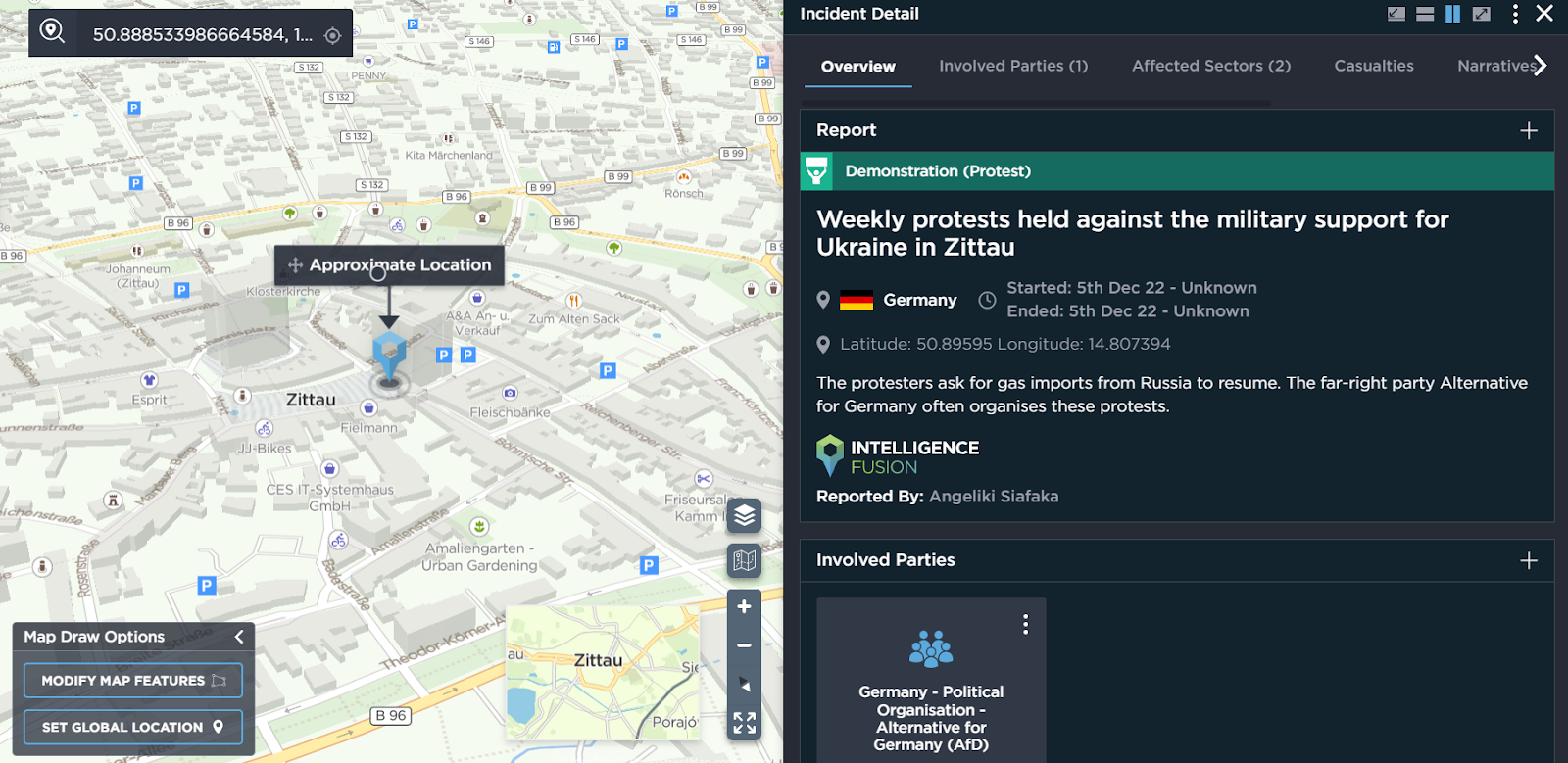
[image source: Intelligence Fusion]
The conflict is likely to continue to increase far-right groups’ support for Russia which will very likely increase the spread of Russian disinformation as well as the risk of insider threats. The risk of far-right extremist groups forming battalions is likely to increase as the conflict gets prolonged and fears that the war may spread to the rest of Europe rise. This would also likely increase the risk of transnational coalitions being fostered.
At Intelligence Fusion, we’ve been tracking the conflict in Ukraine – and its fallout across the rest of the world – since long before the invasion of February 2022, while we also regularly map far-right extremism, neo-Nazism and anti-Semitism in dedicated themes on our platform. We also monitor other types of political and ideological extremism too as part of our regular threat intelligence reporting.
To learn more about the data that supports our analysis, speak to a member of the team today.

